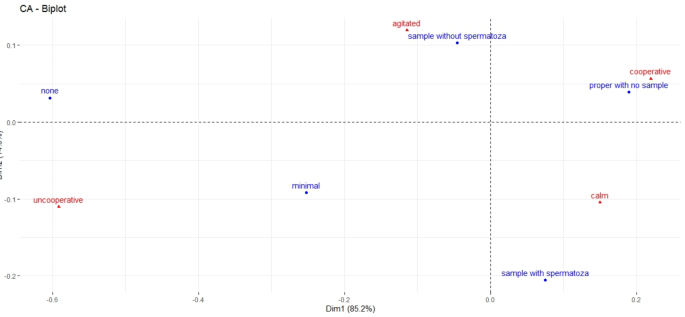Researchers have made groundbreaking discoveries about the semen collection and quality parameters of the endangered African penguin (Spheniscus demersus). This study provides crucial insights into the feasibility of obtaining semen samples from both captive and wild penguins, as well as a comprehensive analysis of their sperm characteristics. With the African penguin population facing a high risk of extinction, this research paves the way for effective conservation strategies, including the use of assisted reproductive technologies.

Semen Collection from African Penguins
The study focused on collecting semen samples from 42 African penguin males, ranging in age from young (less than 4 years old) to mature (over 4 years old). The researchers used a modified massage technique to stimulate the penguins and collect their semen. Interestingly, they found that the level of habituation to humans did not significantly affect the success of semen collection, suggesting that this method could be safely applied to wild penguin populations as well.
Semen Quality Evaluation
The researchers conducted a comprehensive analysis of the collected semen samples, using both traditional and advanced techniques. They assessed various parameters, including sperm viability, morphology, motility, and kinetics. Surprisingly, they found that young African penguins exhibited better sperm motility characteristics compared to their mature counterparts, which is the opposite of what is typically observed in other bird species.
Unraveling Sperm Abnormalities
One of the key findings of this study was the identification of a high percentage of abnormal sperm heads in African penguins. The researchers discovered that young males, in particular, had a significantly higher incidence of these abnormalities, which may be related to their ongoing spermatogenesis. This information is crucial for understanding the reproductive biology of this species and developing appropriate conservation strategies.
Insights from Flow Cytometry
The researchers also employed advanced flow cytometry techniques to assess various sperm characteristics, such as membrane integrity, acrosome status, mitochondrial activity, and DNA fragmentation. Interestingly, they found that mature African penguins had a higher percentage of live sperm with intact acrosomes compared to young individuals. This information provides valuable insights into the sperm quality of different age classes within the species.
Implications for Conservation
The findings of this study have significant implications for the conservation of the African penguin. By understanding the factors that influence semen collection and sperm quality, researchers can better develop and implement assisted reproductive technologies, such as artificial insemination and cryopreservation. These techniques are crucial for preserving the genetic diversity of the dwindling wild population and supporting the captive breeding efforts that serve as a reservoir for future species restoration programs.
In conclusion, this research has made substantial contributions to our understanding of African penguin reproduction, providing a foundation for more effective conservation strategies and the application of cutting-edge reproductive technologies to help safeguard this endangered species.
Meta description: Groundbreaking research unlocks the secrets of African penguin reproduction, paving the way for effective conservation strategies and the use of assisted reproductive technologies.
For More Related Articles Click Here
